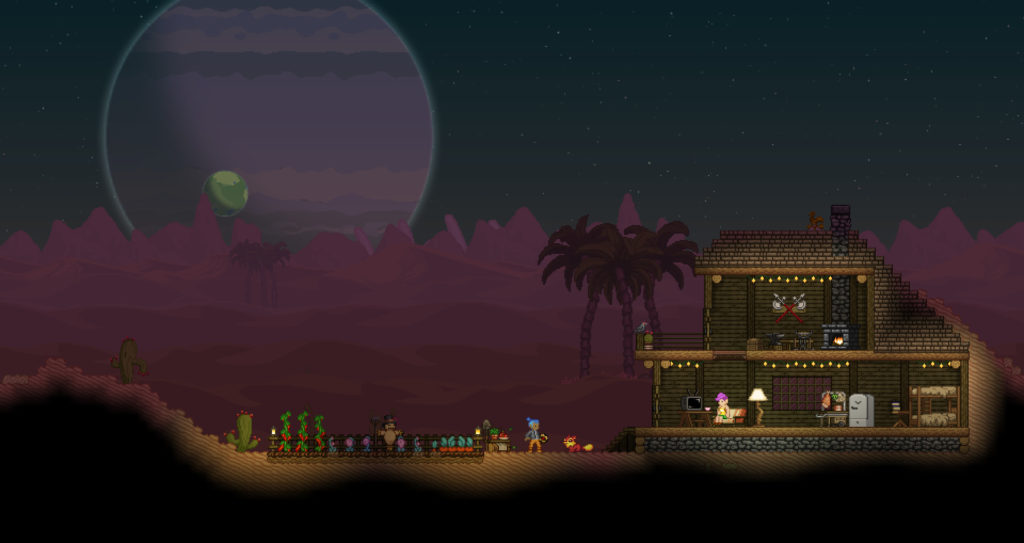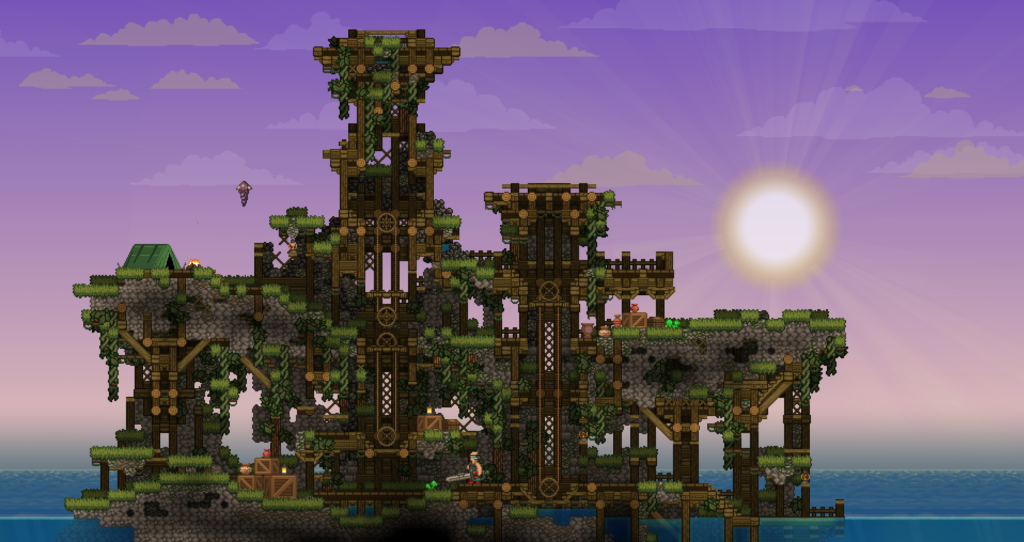Several developers said the UK studio Chucklefish took advantage of dozens of unpaid contributors who worked on Starbound.

The issue was raised by developer Damon Reece on Twitter. According to him, he worked at Chucklefish at the age of 16 and spent hundreds of hours on Starbound. The studio did not pay him for his work, something that happened to dozens of other employees, Reece claims.
Concept artist Christine Crossley and composer Clark Powell were quick to confirm Reece’ words. They were also involved in the development of Starbound. Powell almost completed work on the music for the game. But then the Chucklefish founder, Finn Brice, informed him that the job was not going to be paid, so the studio and the composer parted ways.
Starbound left early access two years ago and became a hit. Ever since, Reece and others have been wary of raising the topic of labor exploitation at Chucklefish. But now, apparently, they are no longer afraid that these revelations might affect their careers.

Toby Fox, creator of Undertale and Deltarune, and Rho Wattson, Igloosoft Games founder, also came forth. Fox, like Powell, worked on the music score for Starbound. Wattson was a graphic artist on the project. Both sided with Reece, Crossley, and Powell saying their words could be trusted.
As for Wattson, she said the following : “The leadership position (Chucklefish) was this: if you care about them, pay them out of your share. And this is despite the fact that they: a) earned 5 times more than me; b) they constantly reiterated that I was no one in this company and had no voting rights. ”
To be fair, the developers admit that Chucklefish did not break any contractual commitments.
Here’s what Watson told PC Gamer:
“Those who were passionate and wanted to help with the game that wasn’t a paid member was given a standard ‘contributor contract’ and told it was ‘industry standard.’ Put simply, it was either sign that contract and get your foot in the door or get out. A few people were happy to donate their time or just wanted to see their work in the game, but for most people who wanted to work their way up to a paid position, they’d be forced to sign that contract and waive any right to compensation.”
Similarly, Reece says that he is making more of moral argument with this, rather than a legal one:
“Regardless of any contracts signed, it’s massively unethical to allow workers to contribute huge amounts of content for no pay when you, the ostensible leader of the team, are walking away with millions of dollars in personal revenue share. If your game sells over two and a half million copies and your only excuse for not treating people ethically is, ‘but the dozens of teenagers whose labour we exploited signed contracts,’ you may need to do some soul-searching.”
Chucklefish is a UK publisher and developer founded in 2011. It is best known for Starbound and Stardew Valley.
Chucklefish has formally responded to this by saying the community contributors were not obliged to create content or meet any deadlines. Everybody was compensated according to their agreement.
The studio’s statement reads:
“It’s been almost a decade since Starbound’s development first began, and from then Chucklefish has grown considerably into an indie studio that has a strong emphasis on good working practices, providing a welcoming environment for all employees and freelancers. Our doors remain open to any related parties who wish to discuss their concerns with us directly.”
What’s also interesting is how the community responds to the stories like this. In the words of a Eurogamer subscriber, “it does give us gamers food for thought when it comes to our purchasing decisions.” We are yet to see whether these allegations will affect Starbound‘s sales or reviews.
